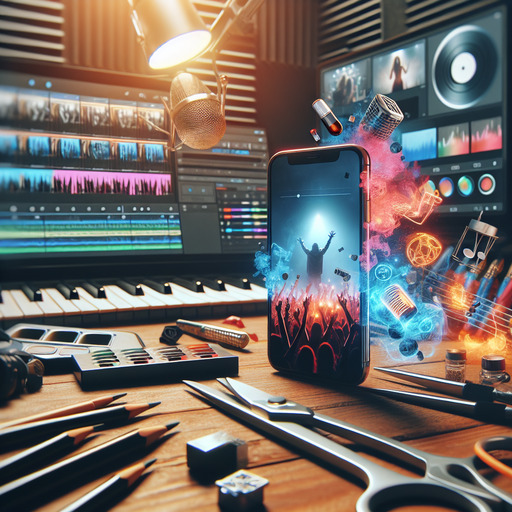
-
Table of Contents
Unlock the potential of your creativity and discover how you can produce stunning music videos using just your iPhone! Learn more here.
Introduction
In recent years, the rapid advancement of smartphone technology has revolutionized various creative industries, including music video production. The question of whether high-quality music videos can be produced using iPhones has garnered significant attention. With their sophisticated cameras, powerful editing apps, and portability, iPhones have emerged as a viable tool for filmmakers and musicians alike. This exploration delves into the capabilities of iPhones in music video production, examining the technical aspects, creative potential, and real-world examples that demonstrate how these devices can be leveraged to create professional-grade music videos.
Music Video Production with iPhones: Can It Be Done?
In recent years, the capabilities of smartphone cameras have advanced significantly, leading many to question whether it is feasible to produce high-quality music videos using just an iPhone. The idea of creating professional-grade content with a device that fits in your pocket is undeniably appealing, especially for independent artists and small production teams working with limited budgets. As we delve into this topic, it becomes clear that while there are certain limitations, the potential for producing impressive music videos with an iPhone is indeed within reach.
To begin with, the camera technology in modern iPhones is remarkably sophisticated. With features such as 4K video recording, optical image stabilization, and advanced computational photography, iPhones are equipped to capture stunning visuals. The iPhone 13 Pro, for instance, boasts a triple-camera system that includes wide, ultra-wide, and telephoto lenses, allowing for a variety of shooting perspectives. Additionally, the device’s ability to shoot in Dolby Vision HDR enhances the dynamic range and color accuracy of the footage, making it comparable to more traditional, high-end cameras.
However, capturing high-quality footage is only one aspect of music video production. The process also involves careful planning, creative direction, and post-production editing. Pre-production is crucial, as it sets the foundation for the entire project. This includes storyboarding, location scouting, and determining the overall aesthetic and narrative of the video. While an iPhone can handle the technical aspects of filming, the creative vision and meticulous planning are what truly bring a music video to life.
During the actual filming, the portability and ease of use of an iPhone can be advantageous. The small size and lightweight nature of the device allow for greater flexibility in shooting angles and movement. Moreover, various accessories such as gimbals, external microphones, and lighting kits can be used to enhance the production quality. These tools help stabilize the footage, improve audio clarity, and ensure proper lighting, all of which are essential for a polished final product.
Post-production is another critical phase where the capabilities of an iPhone can be leveraged. With powerful editing apps like iMovie, LumaFusion, and Adobe Premiere Rush available on iOS, filmmakers can edit, color grade, and add special effects directly on their device. These apps offer a range of professional features that enable precise control over the final look and feel of the video. Additionally, the seamless integration with other Apple products and services, such as iCloud and AirDrop, facilitates easy transfer and backup of files, streamlining the workflow.
Despite the many advantages, there are some limitations to consider. The sensor size and lens quality of an iPhone, while impressive for a smartphone, still fall short compared to dedicated professional cameras. Low-light performance, depth of field, and zoom capabilities are areas where traditional cameras typically excel. Furthermore, the reliance on digital stabilization rather than mechanical stabilization can sometimes result in less smooth footage.
In conclusion, producing a music video with an iPhone is not only possible but can yield remarkable results when approached with the right mindset and tools. The key lies in leveraging the strengths of the device while compensating for its limitations through careful planning, creative direction, and the use of supplementary equipment. As technology continues to evolve, the gap between smartphone cameras and professional equipment is narrowing, making it an exciting time for creators looking to explore new possibilities in music video production.
Q&A
Yes, music video production can be done using iPhones. Many modern iPhones have high-quality cameras and video recording capabilities that are suitable for professional-level video production. Additionally, there are various apps and accessories available to enhance the filming and editing process.